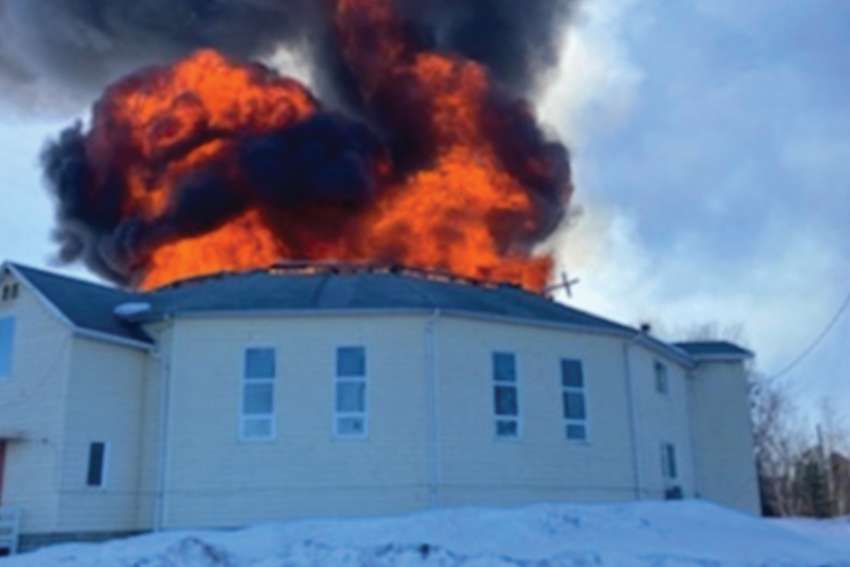Above all, we have to make that commitment with an unflinching recognition of a cold, hard truth about exactly where we stand as Catholics at this moment.
The stark reality is that our churches were burned down. And nobody cared. Nobody. Cared. Or, OK, to satisfy the sticklers, almost nobody. Yes, there was some tongue-clucking and some purse-lipped murmuring of “that just don’t seem right to me, Mabel.” In fairness, Indigenous leaders strongly decried the burnings that occurred on First Nations territories. Thanks be to God, they were adamant that such violent acts are anathema to reconciliation.
But what would have been a generation ago a tidal wave of revulsion was a piddling trickle of national tut-tutting. If we were awash in anything, it was explanations and excuse-making for the ravaging of our houses of prayer.
A common variant could be found in politico-media circles. It involved front-end handwringing about violence in general. Immediately there followed the assertion that specific burning of Catholic churches was “understandable” in light of unmarked graves discovered at former residential schools.
Understandable? It was arson. And just when did the criminal mixing of a lighted match and a can of gasoline ascend to the lofty status of social and political psychology to be explained away by the egghead class? Will the wise who counsel and police us extend similar magnanimity to more garden variety arsonists? Might get-out-of-jail-free cards now be issued to miscreant members of the ethnic group often accused of miraculously producing just-in-time “lightning” at bankrupt but well-insured pizza parlours?
In fact, the phraseology of “understanding” was but euphemism for: “So the Dogans got their just desserts. So what? Nobody cares about them anyway.” A hard truth to hear. Yet in its way, curiously liberating. Liberating, that is, in the immortal if apocryphal words of General George Custer: “At least we know where we stand.”
If they don’t give a fig for us, we still stand on the Gospel obligation to love our neighbours as ourselves. Indeed, the living out of our love of God has its foundation in loving our neighbours as ourselves. They don’t care that our churches were burned down. But we as Catholics must make their uncaring integral to our loving of them as our neighbours.
It is the great paradox of the Gospel and the primary reason why the Church, as our spiritual home and as an active, physical, human institution must be a vital participant in the country’s public life. All of us as Catholics have to read the sign of this summer, and heed the call it invokes, to contribute to a resurgence of the Church.
For most of my life, the greatest impetus for such a resurgence was seen to be getting bums back into the pews for Mass to stop the decline of parishes. It was a worthy, dare I say understandable, strategy. Alas, it has left us further behind than when we started.
What’s needed now is that we who remain must assert ourselves through whatever means we have available, to spread the message to our neighbours that we are, in fact, their neighbours. We continue loving them as neighbours, even though they, as neighbours, didn’t care (or at best cared only a little) when our churches burned down.
This is not something to be dumped at the doorstep of the clergy. It’s not for the bishops to adopt as a program at their September plenary. It’s for Catholic intellectuals, journalists, butchers, bakers and candlestick makers to impart in creative, context-appropriate ways at every effective opportunity. It’s to pray about for guidance; to seek in the Gospels for wise and vital examples.
It’s to show our neighbours with humility that while our churches may burn down, nothing can extinguish the holy fire in our hearts.
(Stockland is publisher of Convivium.ca and a senior fellow with Cardus.)


